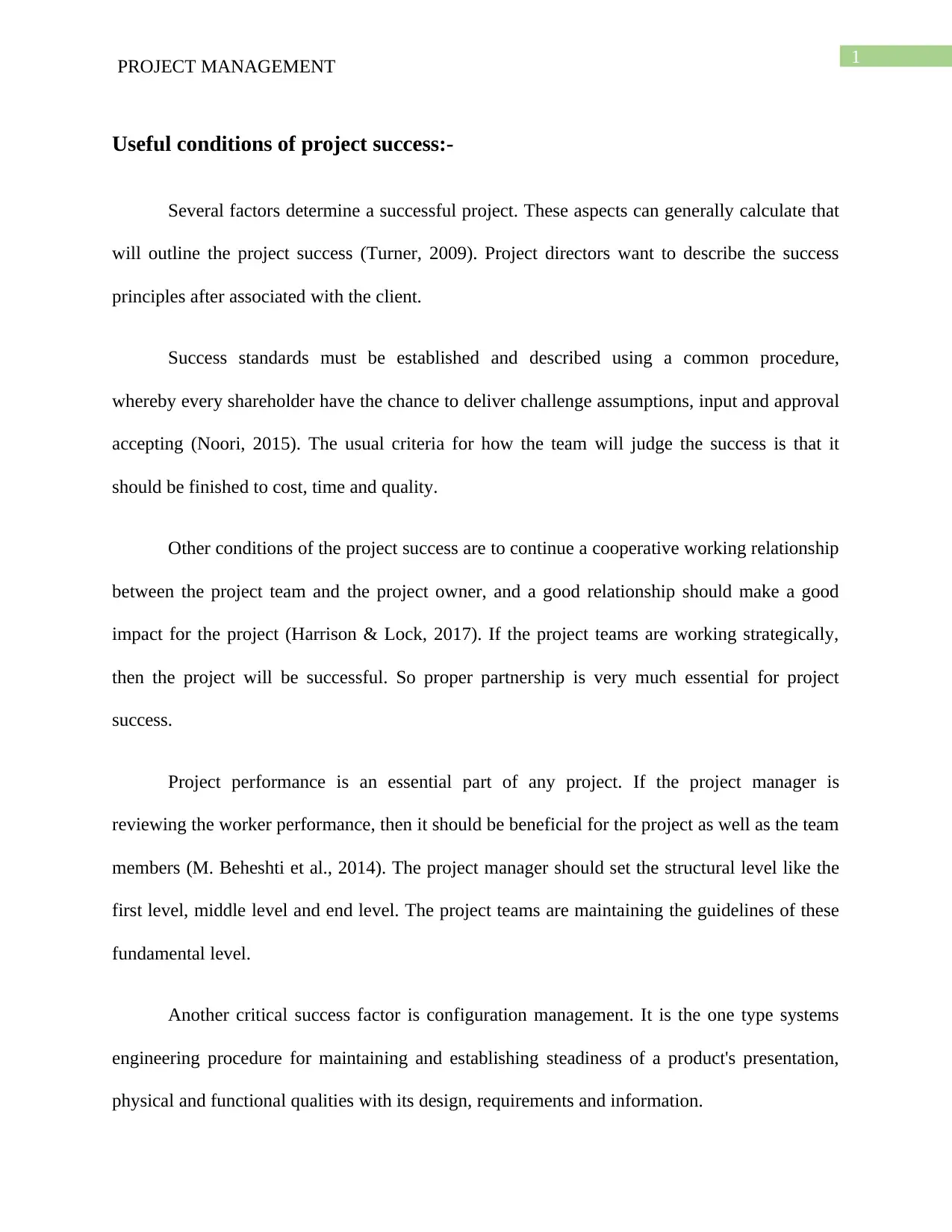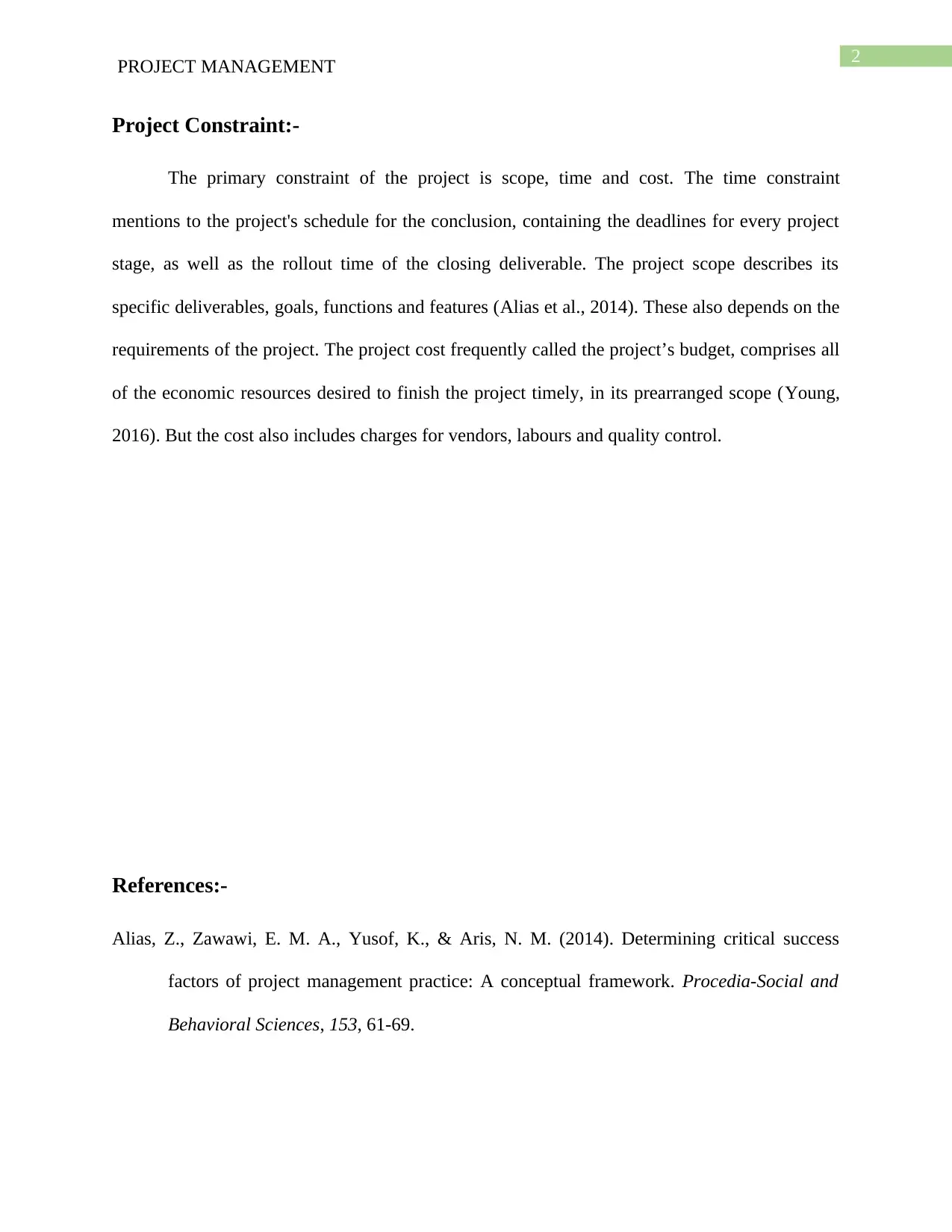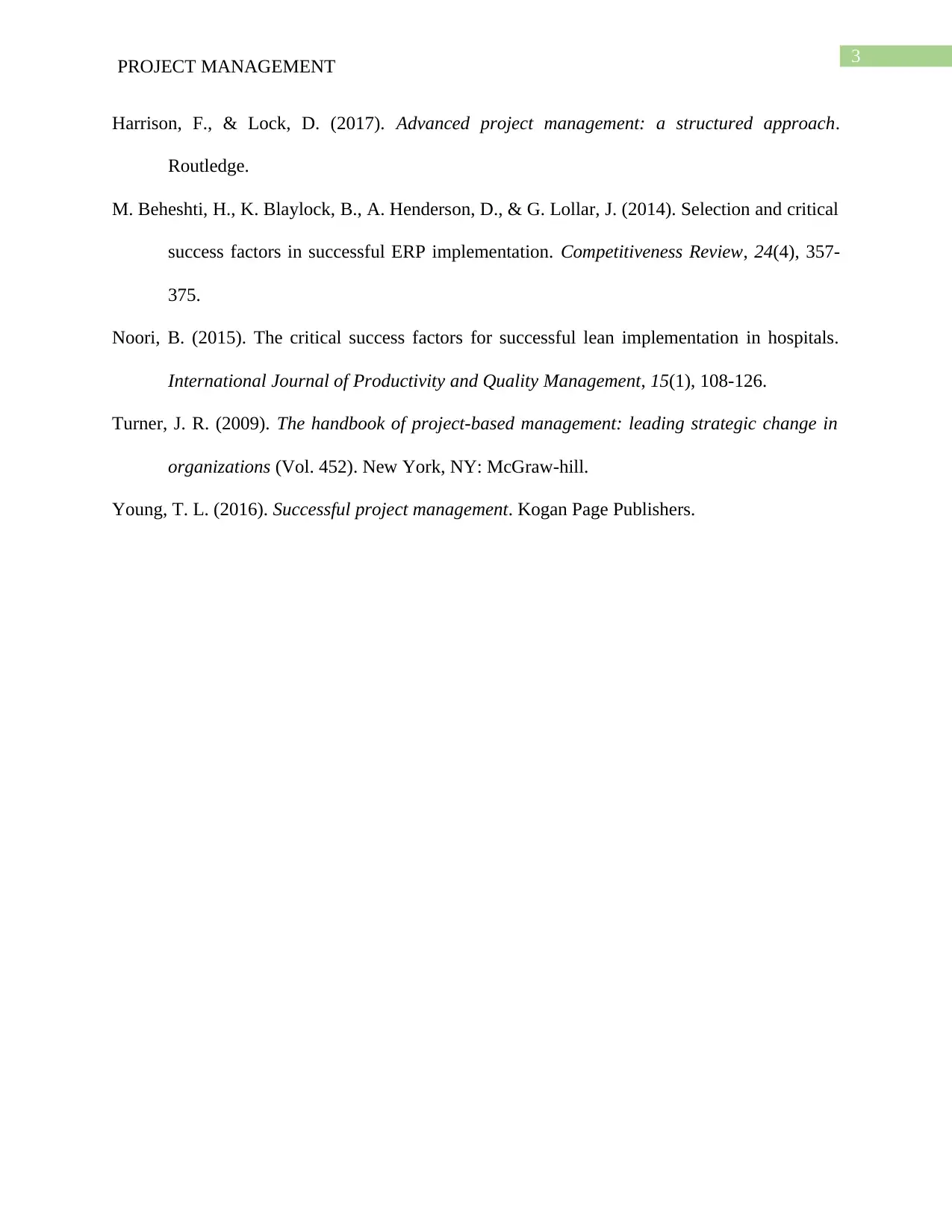Project Management Report: Success Factors and Constraints
VerifiedAdded on 2022/10/08
|4
|641
|38
Report
AI Summary
This report delves into the realm of project management, elucidating the key elements that contribute to its success. It begins by highlighting essential success factors, such as establishing clear goals, maintaining effective communication between the project team and the client, and adhering to the project's scope, time, and cost constraints. The report emphasizes the significance of collaborative teamwork and a well-defined configuration management system. Furthermore, it explores the primary constraints inherent in project management, namely scope, time, and cost, providing detailed explanations of each. The report references several scholarly sources to support its arguments, offering a comprehensive overview of the subject matter.
1 out of 4











![[object Object]](/_next/static/media/star-bottom.7253800d.svg)